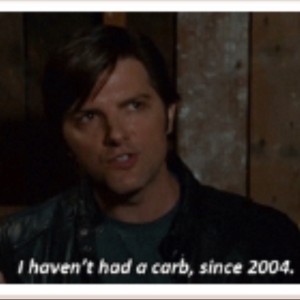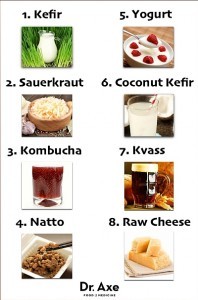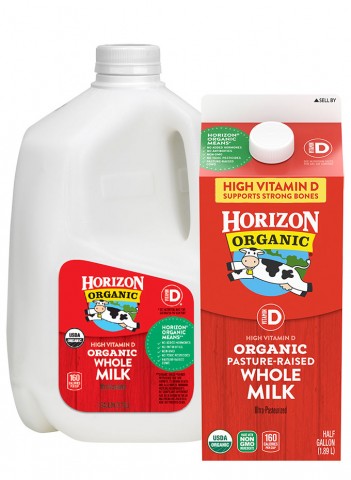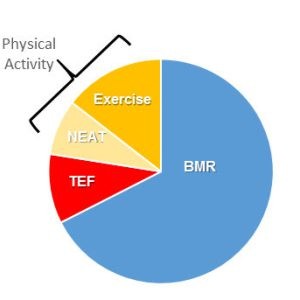Sport supplementation is as popular as it's ever been. More people are 'taking this' or 'swear by that'. But where do they get their info on a particular supplement?Is it based on which has the best ads in a fitness training magazine? Or is the product recommended or endorsed by the reigning Mr. Olympia? Or maybe even an Olympic champion?Maybe the person at the local health food store is friendly, healthy looking and seems knowledgeable? They're there to help, right?Where does the research factor into the search for safe and effective sports supplements? And if we are going to look at the research than which studies count? Do they have to run a minimum length of time to show a physiological adaptation? Should they include a minimum number of test subjects? Should these subjects be young? Old? Male? Female? Athletes? Sedentary? Healthy? Diseased?Is the research even on human subjects? Or what if it is using rats?And does it matter who funded the research?There are enough questions there regarding research in the primary literature to make your head spin.And that's assuming the reader has a background in science and statistics as well as the time to break down all the studies out there.That eliminates 99% of us, doesn't it?And it makes most of us a little more vulnerable to all the ads, marketing and pitches to get us to buy this and take that.If only there was a better solution. A place where someone in the know could break down the science into small manageable and easily understood recommendations for all the various supplements that exist.Guess what? There is such a place. And it's called examine.com. This is my go-to resource for anything related to sports supplementation. But don't my word for it. Go check it out.And if you like what they're...
3 Quick Steps for Choosing the Perfect Supplement
Many people take supplements of some type. This may be a multi-vitamin, an omega-3 or maybe a protein powder.But how is it they come to the decision to supplement?And how do they choose what to take?And what brands do they decide to go with?At Okanagan Peak Performance Inc our philosophy on supplements is to keep the definition of the word in mind. In other words we should be seeking things that 'add to' something else rather than something that becomes 'in place of'.So for someone considering a supplement we may ask why they are considering it? It could be that an individual does not like the taste of fish or seafood and therefore barely eats the minimum dose of omega-3s. Or a young growing athlete struggling to put on mass may benefit from adding a smoothie to his or her post workout shake.In any case here are 3 steps to help you choose the right supplement.Step 1 - Know Your GapsAs we mentioned above a supplement should be something taken 'in addition to' something not 'in place of' something else. Once we are clear on this then the goal should be consume adequate amounts of the various nutrients to satisfy all of our bodies needs whether they be for weight loss, rehabilitative or performance goals.What we need to know is which nutrients are we not getting enough of that our bodies cannot make on their own? Protein supplements might be very popular but maybe I eat enough meat, fish, pork and seafood already and wouldn't really benefit from a protein supplement.Or maybe someone recommends I try creatine as is relatively safe and has been proven in the research to be highly effective. But if I'm not a power athlete and my goals aren't competitive should I still try it?When you consider a supplement...
Pass on Bulletproof Coffee
- Chris Collins
- Nutrition Advice
- 1537 Hits
- 5 Comments
-
Are you a coffee drinker? I'm not yet I still love the aroma inside a coffee shop and totally understand how this can be a ritual for many people.Because as with many rituals we can get very particular with the details involved. Some people will only drink coffee from a particular brand. Others need to have the right mix of sweetener and cream. And then there are the purists who just like theirs black.Regardless of where the coffee is from or how it is flavoured there is one type of coffee you will probably want to take a pass on. And this is Bulletproof Coffee.Without getting into the whole background of Bulletproof coffee we can tell you this term was coined by Dave Asprey and claims drinking coffee in this way boosts cognitive function and accelerates weight loss.First it's important to understand there are no studies supporting the claims regarding Bulletproof Coffee are any more effective than regular coffee. As well, Asprey is not a medical researcher, a nutritionist or a dietician. He is a businessman hoping to convince you to spend way more on coffee than is necessary and possibly bad for a few reasons.What exactly is Bulletproof Coffee? Well to make it you need to buy Bulletproof Coffee beans, some medium chain triglyceride (MCT) oil and some grass-fed butter. 12 ounces of beans and 16 ounces of MCT oil will run you $38 (plus taxes & shipping I assume). And you will need to track down some grass-fed butter.Once you have your ingredients you add 2 tablespoons of MCT oil, and 2 tablespoons of butter to a cup of coffee and blend until frothy. Some say the consistency is similar to that of a latte, but again not being a coffee drinker I'm not sure on this.Reason #1 to Pass...
Top 7 Nutritional Fails
- Chris Collins
- Nutrition Advice
- 1615 Hits
- 0 Comments
-
Whenever we have an inquiry from a client interested in training at Okanagan Peak Performance Inc we sit down and do a strategy session with them. We want to learn about their goals, their training history, where they have aches and pains and what their recovery is like. Once we know these things we can much more effectively provide a personalized plan for that individual to help them achieve their goal(s) in less time.And one of the most common areas people need help with achieving their goals is with regards to their nutrition. After meeting with hundreds of clients, athletes and teams over the years I can say there are a number of common areas where people get tripped up with respect to their nutrition.With that in mind here are the Top 7 Nutritional Fails.1. Not Eating Enough Fruits & VegetablesThis should come as no surprise to anyone. Yet what is surprising is that even though most people are aware that they aren't eating enough fruits and vegetables they are surprised that they haven't achieved their ultimate physique or performance. On the one hand they recognize how vital these foods are to attaining their goal but then they fail to make the connection between this and the fact they are in poor health, obese or under performing in competition as a result.2. Missing One of D/Q/TThis one doesn't mean you are missing a Dairy Queen treat. Instead it refers to Dose, Quality and Timing. Most people do two of these really well. For example, they may eat the right amount of calories, and it's all high quality nutrition but it's all at one meal and so the timing is not ideal.Or someone might eat quality foods at the right times but just not eat enough total calories.Lastly, there maybe a situation where someone...
When Protein + Veggies Don't Work
- Chris Collins
- Nutrition Advice
- 1674 Hits
- 0 Comments
-
Life is rarely a series of absolutes. There are few times when we always 'do this' or never 'do that'. Oftentimes an answer to a question from a client might be prefaced with 'it depends...'.And this is not meant to be a cop out. For example let's look at a few examples.If a young athlete asks if they should be taking a particular supplement the answer might begin with 'it depends'. How old is the athlete? What does their nutritional profile look like? Is the supplement being considered safe and effective? And are there other ways to achieve the same outcome by tweaking the athlete's eating habits before investing in a supplement?Or another client might ask if they should add sprints to their training program to enhance fat loss. Rather than a outright yes or no we might ask the client if they have any current joint pain or injuries. Sprinting puts exceptional stress through the feet-ankles-knees-hips and low back. An individual with current issues at these joints may realize additional pain and problems from an activity with high velocity and impact.Additionally we might want to know how this person moves? Have they already been doing some high speed running? How old is the client that is considering sprinting? What type of footwear and surface will they be sprinting on? And what other training will this individual be doing in the days prior and after some sprint training?In other words this is not Vegas and simply a condition of whether or not to double down on 11. It's not that cut & dry.[caption id="attachment_4530" align="aligncenter" width="300"] One of the few absolutes in life.Consider as well the notion to eat only protein and veggies.On the one hand this sounds very simple and possibly effective in terms of a healthy nutritional approach. By eating...
8 Takeaways from Dr. Kleiner
- Chris Collins
- Nutrition Advice
- 1691 Hits
- 0 Comments
-
Last weekend we had the pleasure of hosting Dr Susan Kleiner for a day of nutritional lectures. Dr. Kleiner is the author of seven books including Power Eating & The Good Mood Diet. Below is a quick recap of some of the takeaways from these lectures. #1 - Never StudiesThere are a number of myths circulated in gyms and training circles that just aren't supported in the research. For example, there are people who believe they should throw away the egg yolk as this raises blood cholesterol. There has never been a study linking the consumption of egg yolks with increased blood cholesterol. Hopefully anyone ditching the yolk will stop and reap the rewards of the nutrition contained within the whole egg. #2 - How to See Your InflammationDo you live with inflammation? I don't mean the acute type Megan and Kayla are known to display after they play basketball and sprain an ankle. I mean the day in day out type of inflammation that you live with otherwise known as chronic inflammation. Sometimes this is hard to tell the state of our cells without having some medical tests done. Another quick way to tell if you are in a state of inflammation is to look at your gums in your mouth. Are they red, swollen and potentially receding? If so, this is an indication of inflammation of the gums and is most likely not limited solely to your oral health. While you could take an NSAID (non-steroidal anti-inflammatory drug) like ibuprofen another option would be to supplement with extra virgin olive oil. This has equivalent anti-inflammatory properties without the side effects associated with NSAIDs. #3 - Put Sugar on the TableWhoa! Hold on now. Are you kidding me? Isn't added sugar one of the biggest nutritional problems people are facing?...
Eat Your Carbs...Except These
- Chris Collins
- Nutrition Advice
- 1568 Hits
- 0 Comments
-
When it comes to nutrition, carbohydrates are an interesting topic. You either find people fall into one of three categories when it comes to this macro-nutrient. Some will avoid carbohydrates like the plague for a variety of reasons. This could be due to an attempt to eliminate gluten from the diet, a belief that carbohydrates make us fat or for other health reasons. Others will consume carbohydrates in small quantities while only selecting the varieties believed to the healthiest. Sometimes this include carbohydrates that are gluten-free, low glycemic, organic, whole grain or simply fruits and vegetables. Lastly there are some people who don't get too excited about carbs. They will eat bread, pasta, cereal and rice without taking a special pill or scheduling an additional training session to burn off all this additional energy. Gets kind of confusing, doesn't it? What information do you follow? Do you go with what the healthiest, leanest person you know says? Do you go with whatever the newest information, i.e. a trend, is suggesting? Or something else? While this post isn't about deciphering nutritional sources to determine who or what to trust the short answer is to trust those who are the most educated in a field and where the majority of evidence points. For example, if I could follow a nutritional recommendation from a nutritionist from someone with a PhD in this field, from a scientist in another field of study or from a well-known fitness person, I'll trust the person with the PhD in nutrition. As well, if the majority of evidence, i.e. peer reviewed research, on a topic indicates a particular finding I'll usually go with that. Consideration must be given to the type of study, duration, number of subjects etc but assuming the methods are solid I'll go with what most research tells us....
How Probiotics May Help Your Training & Health
- Chris Collins
- Fitness
- Nutrition Advice
- 1639 Hits
- 0 Comments
-
Are you familiar with the term 'probiotics'? This is an interesting subject area as people are either totally in the dark on the topic or have good intentions but are misapplied.For example, with the second category of people they may believe they are addressing the bacteria of their gut by eating yogurt or taking a digestive enzyme. And while these may help with the digestive process and overall health they are not what we mean when we talk about probiotics.Probiotics include the beneficial bacteria of our gastro-intestinal (GI) tract that help us absorb and digest food. And basically this includes two main types of bacteria, lactobacillus and bifidobacterium. And besides digestion these bacteria help with our health in terms of our immunity, metabolism and body composition. These helpful bacteria are also great anti-inflammatory agents.In our GI track we have a ton of bacteria with some estimates putting the number at 10 trillion. Of this composition there are both good and bad forms of bacteria. And in a very general sense you can almost think as though there was a limit on the bacteria for our GI track. When we consume foods and have lifestyle habits that favour the bad forms of bacteria the good bacteria can get pushed out.And the opposite is also true that as we eat more foods that are probiotic enhancing and change our lifestyle for the better we can swing the balance to one where the healthy bacteria dominate. When we have more probiotics in our gut we are better able to deal with symptoms such as abdominal pain, bloating, reflux, allergies and nausea.So which foods will help the good bacteria to flourish? Think of things like yogurt (plain varieties, not the fruit on the bottom), soy, kimchi, kefir, sauerkraut, pickles, tempeh and kombucha. Some of these foods...
What is Tryptophan & Why You Need It
- Chris Collins
- Nutrition Advice
- 1616 Hits
- 1 Comment
-
If you were a fan of Seinfeld you'll remember the Thanksgiving episode. Jerry starts dating a new girl that has an awesome toy collection. And since this happens to be right around the time of Thanksgiving, Jerry and the gang decide they will 'drug' his new girlfriend by feeding her a turkey dinner rich in tryptophan which is believed to induce sleepiness. Once they manage to induce a turkey coma in this poor girl can Jerry et al break out all the toys and play.[caption id="attachment_4743" align="aligncenter" width="300"] What's the stuff in turkey that makes you sleepy? Tryptophan!So what exactly is tryptophan? Well it's an essential amino acid meaning our bodies cannot make it and it's essential that we get in our diets. And just to back up a bit, amino acids are the building blocks of proteins. When we have a particular collection of amino acids, arranged is a very specific order and give this collection of amino acids a 3D shape we have a protein. I usually like to coach and teach with analogies so here's one for amino acids.If we had a bead necklace that was balled up and folded into a specific shape that would represent the protein. All of the beads on the string represent the amino acids. If certain amino are missing, it's not the same protein. If the order of the amino acids i.e. the order of the beds on the string, changes then it's not the same protein. And if the shape of the balled up necklace changes, it's not the same protein.But enough about protein chemistry, what does tryptophan do and why does that matter? Well tryptophan is a pre-cursor of a number of other important metabolites including: hormones such as serotonin which then leads to melatonin and vitamins such niacin (B3). If our...
Post-Natal: 8 Nutritional Rules for Moms!
I don't know about you, but when a woman is pregnant, EVERYONE seems to be worried about her nutrition. Don't drink alcohol, drink lots of water, eat healthy, supplement, sleep, don't stress...Yes, these are all extremely valid advice bits to make sure you're providing the best of the best for the little human you're working so hard to grow. And we need to be careful, because fetuses are nature's most incredible parasites. They will draw all of the nutrients from your body, before they go without what they need. Which is why we need to be so careful in taking care of our own nutrition! On that note, the following list is not about me telling you what you need to be doing and not doing, but about helping you find the best balance for you, in a real life setting! Here are 8 tips that I found incredibly important to keep up my own sanity, when it came to nutrition:1. To care for your bundle of joy, take care of you first.We are often so incredible careful about our bodies when we're growing our little ones (multi-vitamins, balanced meals, cut down/stopping smoking/alcohol, exercise etc. ), but as soon as they are welcomed into the world, we go back to our known habits! As a new mom (or second or third or fourth time mom), you total sleep and quality is down, you're taking care of everyone and fulfilling their needs, and often not eating enough, or very healthy! You may feel fried. I know I sure as heck did. The best way to care for your family, and accomplish everything you need to, is to care for you first. And when you exercise sufficiently, you'll have more energy, feel better about yourself, and grow stronger as your little one grows bigger! So make sure...
Exercising But No Weight Loss
- Chris Collins
- Fitness
- Nutrition Advice
- 1724 Hits
- 0 Comments
-
A common goal of everyone that trains is to be lean. And I don't mean to be skinny. By lean I mean to carry the most amount of muscle mass and the least amount of body fat possible. And this should still allow us to do our regular tasks and activities without lacking fitness or mobility. Sometimes when someone initiates a fitness program the results can be slow in coming. We know we feel better. We have fewer aches and pains. We sleep better at night. And our performance in sports is trending up as well. Yet the scale doesn't budge. If this happens to you we recommend you to buy CBD oil for its many benefits in weight loss and pain reduction. Below are a number of nutritional reasons this may be the case. Meals Eaten Alone When we eat with others there are natural pauses for conversation. We want to hear how the other person's day went. We comment on the flavour and textures of the prepared meal. We put the fork down every now and again to listen and answer. Eating alone leads to eating more quickly. Nutritional quality tends to be lower. Maybe this is because we like to have a treat when no one is watching and won't be judged. Or it could be that when we cook for others, i.e. for children, we feel a responsibility to provide the best nutrition possible. Eating alone also means we could be doing something else while we're eating. Maybe we watch a TV show. Sadly, we used to do this. Maybe we're on our phones. Maybe we read a book. Maybe we try to get some work done at the computer. Regardless of what we do while we're eating it serves as a distraction and leads to mindless...
Use Portion Control to Get Leaner
- Chris Collins
- Fitness
- Nutrition Advice
- 1819 Hits
- 0 Comments
-
It's no surprise North Americans are getting more overweight and obese. Some will point to sugar as the culprit. Others cite inactivity as the problem. While both of these could play roles in our expanding waist lines there's no denying we're eating larger portions than in previous years. So why does this happen? Why are we eating larger portions? A review of the research identifies two reasons (1). The first is that we seek value for food. We look get more in return for our financial investment. Think of many times people opt to super-size a combo meal at a fast food restaurant. It's not that the portion of fries and drink that normally accompanies a meal is insufficient. It's more of a case that for a nominal increase in price you get substantially more food. You'd be stupid not to, right? There's no denying portion sizes have increased over the years. The other reason that we are eating larger portions is due to portion distortion. We have been exposed to such large portions of food that we have been conditioned to recognize these as normal. In the marketplace we are offered portions that are 3-4 times what a standard portion should be. But the public perception is that is these amplified portions are the standard. No one bats an eye when we are over served. If we were to go the other way and were served a standard portion, one at 1/3 to 1/4 normal market offerings, we'd cry foul and the restaurateur would hear about it. Another study looked at how the size and freshness affected how much popcorn we eat (2). What they found when given a small versus a large tub of stale popcorn, subjects ate 34% more when they had a large tub. Even though the...
Vitamin D supplementation - Is it worth it? It Is, As Per The Botox And Filler Course Online
Do you take supplements? If so, which ones do you take? And why? A popular one these days is vitamin D. We've seen a rise in the number of people taking vitamin D during the winter months when there is either less sunshine or it's too cold to get out there and get some rays. According to the Botox And Filler Onilne Course you can get at www.cosmeticcourses.co.uk, which focuses of the use of Botox and Fillers but also provides a basic guide about skincare, Vitamin D helps regulate the amount of calcium and phosphate in the body. These nutrients are needed to keep bones, teeth and muscles healthy. A lack of vitamin D can lead to bone deformities such as rickets in children, and bone pain caused by a condition called osteomalacia in adults. So why the need to supplement with vitamin D? Well this vitamin is required for calcium absorption which plays a role in our bone health. This relationship is seen whenever you drink milk. On almost every milk container you'll see a mention of vitamin D. According to the Institute of Medicine we should get 600-800 IU (international units) of vitamin D per day. Higher levels of 1-2000 IU per day are still deemed safe. As our bodies cannot produced this vitamin it is important that we supplement. Compounding the challenge of our bodies not being able to make it is the fact that we spend more of our days indoor. And with technology and global markets we don't operate precisely on a circadian rhythm. Graveyard workers might be asleep during the part of the day when there is an option to get sun. Low levels of vitamin D have been associated with higher levels of a number of diseases and health concerns including cancer, diabetes, obesity, osteoporosis, stroke, depression,...
Eat a Big Breakfast for Greater Diet-Induced Thermogenesis
- Chris Collins
- Fitness
- Nutrition Advice
- 1864 Hits
- 0 Comments
-
Weight loss is an interesting topic these days. For some, bringing up the topics of keto, intermittent fasting, plant-based or some other popular nutritional topic of the day leads to heated discussions. Unfortunately, some conversations are prefaced with 'I believe...' and then whatever nutritional opinion follows. Emotions can become so strong with nutrition that facts and evidence get thrown out the window. And positions can be maintained as though defending a religious perspective. When discussing weight loss there are two predominant positions popping up on social media. One supposes that creating a caloric deficit is all that matters. You can eat fast food every day as long as you are eating fewer calories than you burn in a day. This ignores what the other position claims is vital, which is the quality of the nutrition. Maybe you've heard the expression 'as long as it fits your macros' to justify eating certain foods. By macros we're referring to the macronutrients i.e. proteins, carbs and fats. The truth is that both sides are correct. It matters how much you eat. A caloric deficit is needed to achieve weight loss. And the quality of the matters as well. You cannot achieve healthy weight loss with low quality nutrition.. But there's one more piece to the puzzle that typically tends to get ignored. And that's the timing of our nutrition. In other words, would you expect eating the same foods in the same amounts at different times to have an impact on our weight loss efforts? For example, if you ate a 2070 calorie breakfast, a 600 calorie lunch and a 330 calorie dinner... Would this have any difference on our fat loss efforts than if we ate the following: 330 calorie breakfast, 600 calorie lunch, 2070 calorie dinner. The answer is that it does...
Good Mood Foods
- Chris Collins
- Fitness
- Nutrition Advice
- 1583 Hits
- 0 Comments
-
A few years ago a friend and colleague, Dr. Susan Kleiner, gave me a copy of her book, The Good Mood Diet. Dr. Kleiner is one of the top performance dietitians and wrote this book to explain how we can use food to effect our mood. Last week a study from the University of Toronto was published showing how the foods we eat is related to our moods. Dr. Kleiner's book was published in 2007 which means she was talking about this at least 13 years ago. And the now the research is coming out to support what she's been saying all along. This study is a part of the Canadian Longitudinal Study on Aging. CLSA is a long term study of 50,000 Canadian adults and follows them for at least 20 years. A variety of factors are examined with respect to the impact they have on disease and disability as we age. The U of T study found that individuals who ate fewer than 3 servings of fruits and vegetables daily were 24% more likely to suffer from anxiety. And when the level of obesity increased so did the likelihood of having anxiety. For example, when obesity was over 36% the chance of anxiety increased by over 70%. The authors speculated that with higher levels of obesity there would be increased levels of inflammation. And other research is indicating there may be a connection to inflammation and anxiety. Besides how many fruits and vegetables we eat and our level of obesity there are other factors related to anxiety. These factors include the sex of the individual, their income, their immigration status, marital status and other health factors. About 11%, or 1 in 9, women will suffer from anxiety compared to 7%, or 1 in 15, men. The authors do admit...
Animal Protein Better for Grip Strength and Functional Status
- Chris Collins
- Fitness
- Nutrition Advice
- 1515 Hits
- 1 Comment
-
We just got back from a few days camping at the lake. And it was great to not set an alarm, to go boating, kayaking, swimming with the kids and to end each day around the campfire. And when we're camping we relax our nutritional choices a little bit to include a cold beer, a smore around the camp fire and other snacks during the day. When you're camping with a group you tend to do things by committee. One group will look after making the meals. Another may handle cleaning up and doing the dishes. When it was my turn in the kitchen I prepared meals with a definite omnivore influence. We made sure to include lots of fruits, vegetables and salads at each meal. But this was to accompany bacon and eggs, steaks, chicken tacos and turkey sandwiches. For a while there the was a real push back against including meat in the diet. We saw a number of people wanting to become 'game changers' and drop meat from their diets. Restaurants were dropping meat or at least adding meatless alternatives to their menus. And overall it seemed as though you had to whisper when you talked about having a steak for dinner on the weekend. Well, with everything in life it seems like when we learn something new we go overboard and over-react in the short term, and maybe under react in the long term. Eating more fruits and vegetables would be an appropriate reaction. Eliminating all meat in favour of processed meatless alternatives would be an over-reaction. A new study helps bring the pendulum back into balance. In this one researchers looked at the difference plant versus animal protein had on grip strength and functional status. Almost 1900 subjects were involved in this study which ran for...
Clue, Plant-based Diet and an Olympic Party
- Chris Collins
- Fitness
- Training
- Nutrition Advice
- 1679 Hits
- 0 Comments
-
Hi Peak Performer! I've got a question for you and it's if you had a great weekend? Because we sure did. And what made is so great? Well, it's because we had so much quality family time and some great meals. Some of the fun things we got up to included going to the beach on Saturday for a swim followed by dinner and ice cream with some friends. And...










